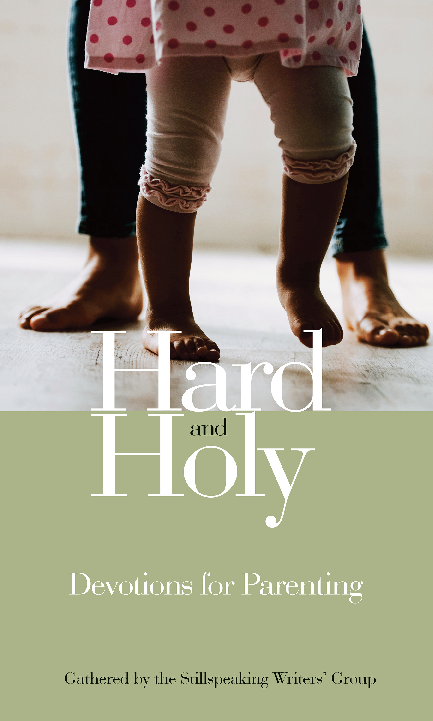Baby Talk
When I was a child, I spoke like a child, I thought like a child, I reasoned like a child; when I became an adult, I put an end to childish ways. – 1 Corinthians 13:11 (NRSV)
Our baby daughter isn’t speaking real words yet (just a few mamas and dadas—cue heart explosion), but she’s beginning to find her voice through a steady stream of bababas, nananas, raspberries, little growls, and coos. When a baby coos up at you, you cannot help but coo back! Or goo or pffffffth or whatever it takes to win one of those rapturous, gummy smiles.
These days, I find myself in a nearly perpetual singsong, babbling right back, and generally making a fool of myself. But all this baby talk isn’t just cutesy or condescending, I reassure myself. Sometimes called “motherese,” “parentese,” or caretaker speech, it’s part of natural language acquisition, a vital instinct we are given to help infants develop, bond, and begin to understand this wild world.
The theologian John Calvin uses the analogy of baby talk to describe how we understand God, or more accurately, how God makes Godself understandable to us: God “lisps with us as nurses are wont to do with little children.”
Imagine that. God stoops to us, scoops us up, meets us exactly where we are in the tender, chaotic nurseries of our little lives, mirrors us back in our absurdity and calls it adorable. And so, slowly, dimly, and sometimes in sudden bursts, we learn and grow and begin to get it.
Prayer
Mamadada God, you know us through and through. Sometimes, all our God-talk can feel like so much grasping and blather. How can we mere baby mortals strive to speak of and to you, Creator of the universe, ultimate and infinite Mystery? It’s like, ba ba ba. goo goo ga. But you know what we mean.
 About the Author
About the AuthorKit Novotny contributed this devotional to Hard and Holy: Devotions for Parenting, a collection of devotionals for the spiritual practice of raising, teaching, learning from, delighting in, and cleaning up after children. Order Hard and Holy today.